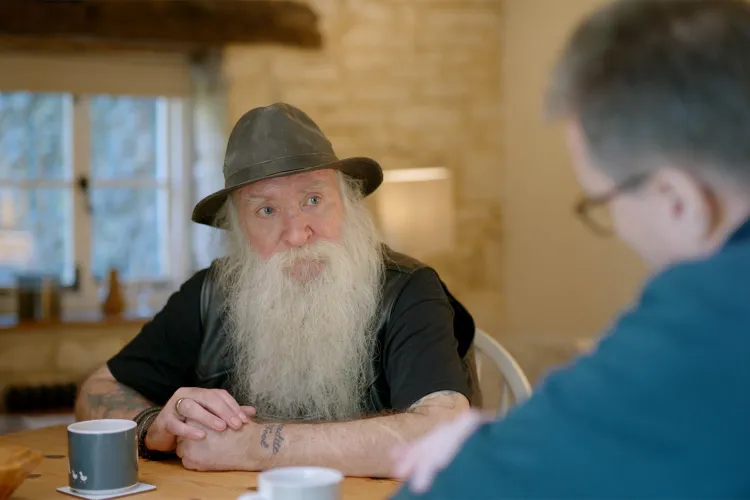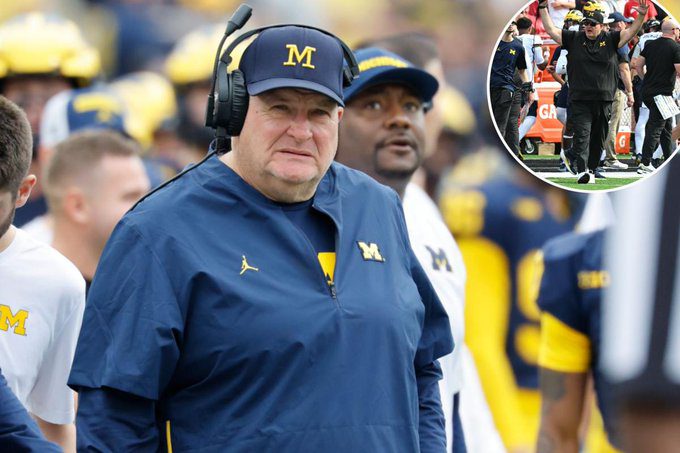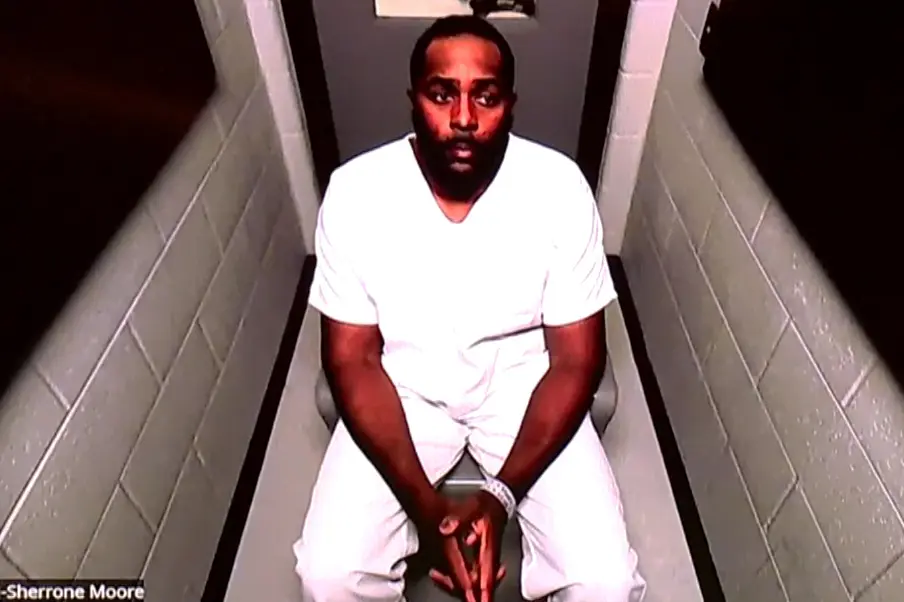Abandoned as a Baby, He Reunited with His Birth Family — Then Learned His Late Mother Tattooed Him on Her Arnm
I watched that moment on Long Lost Family and felt my throat close with emotion. The show introduced Martin, age 55, who was given up for adoption shortly after birth. His younger brother Mark, now 44, reached out to the show to find him, carrying a photo his mother kept by her bedside. As part of their discovery, Mark revealed that their birth mother, Diane, had a tattoo of Martin as a baby on her arm. When Martin heard that, tears filled his eyes.
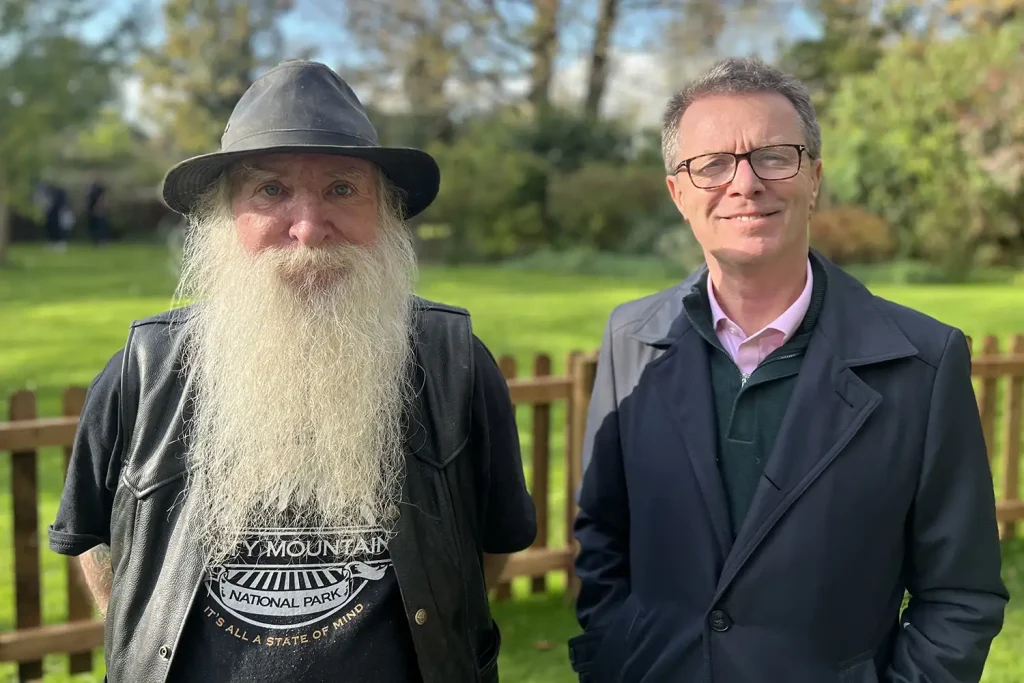
Martin was born Kevin David Phillips in Norwich, England, to Diane when she was 19 and single. Family pressure led to her placing him for adoption. He grew up knowing he was adopted but unaware he had a brother until recent years. (People) Mark explained that Diane slept with a photo of Martin at her bedside for years, never letting it go. She later passed away in 2023 at age 73.
The revelation of the tattoo was profound. When host Nicky Campbell told Martin, “She had a tattoo of you,” Martin’s voice wavered and he tried to steady himself. “At least she wasn’t averse to tats,” he said, wiping away tears. (People) That’s not a flippant joke — it was a gentle way to acknowledge the depth of what he was hearing. A mother who couldn’t raise him had kept him close in memory, in skin.
Mark told Martin that he always wondered about the photo his mother kept, placed beside her bed. He’d asked Diane, “Who’s that?” over the years, and she was vague, evasive. Finally, she said, “That’s your brother … he got taken away.” (People) That admission changed Mark’s life. He carried that unanswered question for decades — until he invited strangers to help him find his brother.
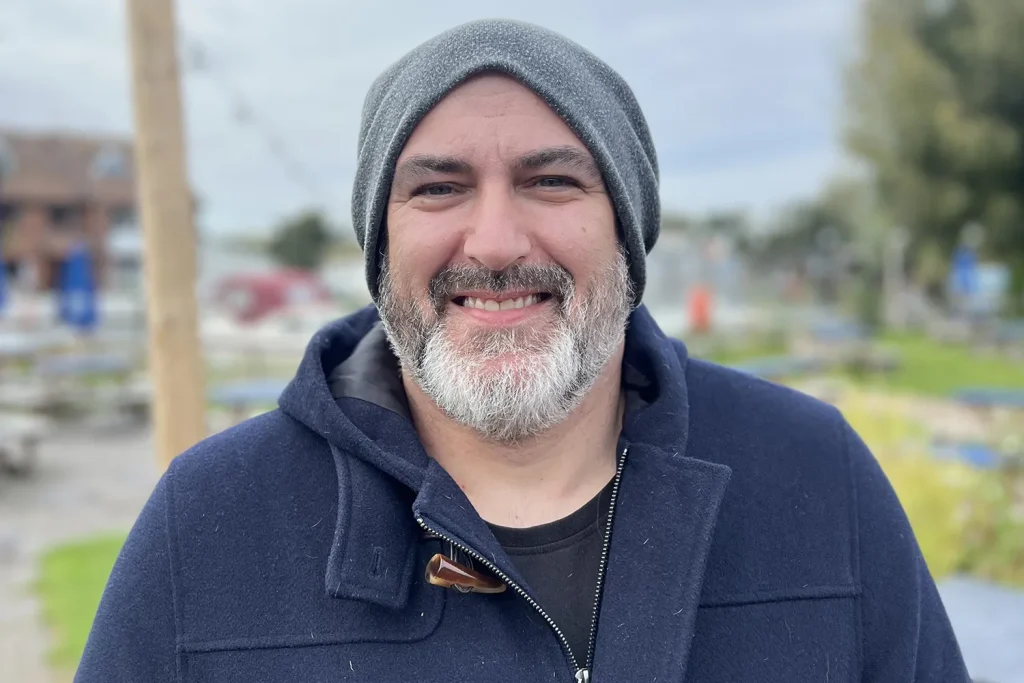
On the show, as the brothers reunited, Mark said discovering Martin was “really strange.” He described it as a “bombshell” he was setting off. But for Martin, it was a moment of seeing a love he had never known. “It turned out to be full of glitter,” he said. (People)
I find myself thinking about Diane and what drove her decision back then. She was so young, possibly isolated or pressured. To lose a child in her arms if she had him, and to carry him in memory — in photograph, in ink — suggests so many things unspoken. She may have never forgotten him, even though she couldn’t keep him. That tattoo became a silent declaration.
Martin, who is a musician and lives in Gloucestershire, now holds something many adoptees long for: a connection, a reflection of where they came from. He told Mark, after viewing the tattoo, that the brother’s letter he read “put his soul on paper.” He seemed to recognize that their reunion was not only about matching DNA, but about weaving back what had been severed. (People)
The tears weren’t just about the tattoo. They were about longing, absence, identity, memory. They were about what it means to be human — to be wanted, even if from afar. To be remembered, even when you’re absent.
Watching Martin stand there, absorbing that revelation, I thought of all the people in the world who never learn these truths. All the lives lived in shadow, with questions that never find answers. And for him, that moment of truth — painful, beautiful, shocking — was also a homecoming.
In the end, the tattoo was more than ink. It was a signpost — pointing backward toward loss, forward toward reconciliation, and across time toward love that tries to persist.
